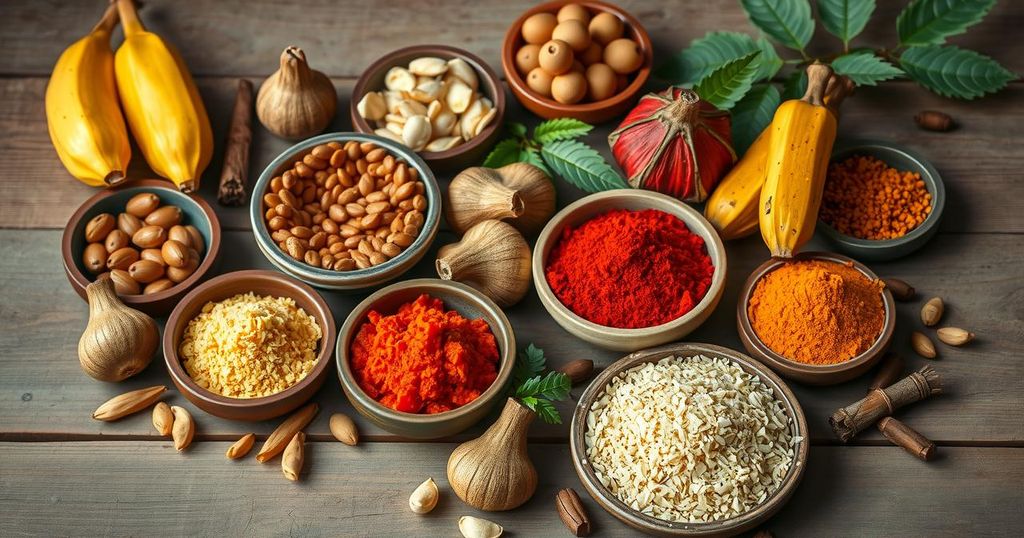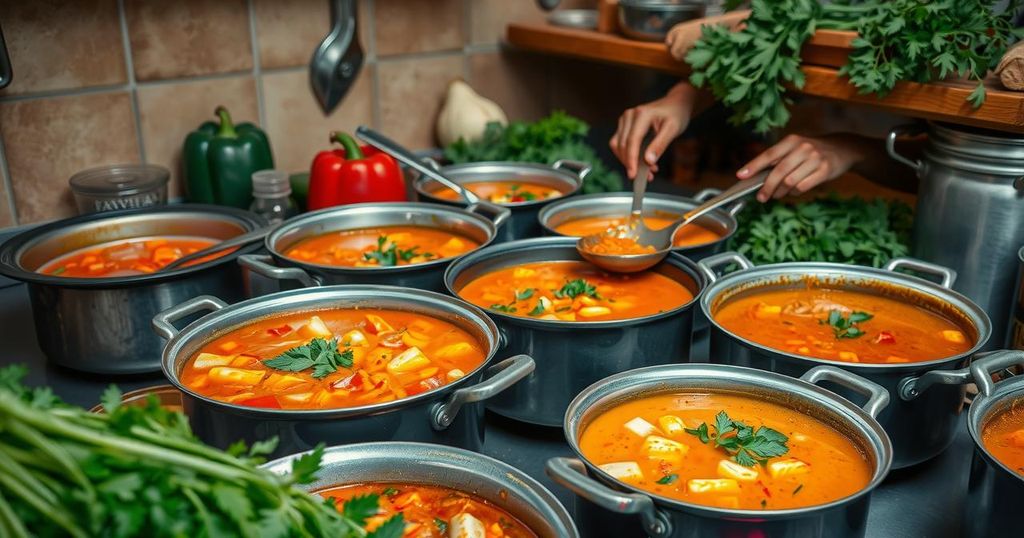Eric Adjepong: Culinary Journey Through Ghanaian Heritage and Innovation
Eric Adjepong, known from “Top Chef,” merges his Ghanaian roots with culinary art through his new restaurant, Elmina, and his cookbook, “Ghana to the World.” In a recent interview, he reflected on how his heritage shapes his perspective on food, hospitality, and community. Adjepong shares personal stories and key ingredients that define his cooking, showcasing traditional West African recipes infused with modern creativity.
Eric Adjepong, renowned for his appearances on two seasons of “Top Chef,” merges his Ghanaian heritage with his culinary ventures through his upcoming D.C. restaurant, Elmina, and his cookbook titled, “Ghana to the World: Recipes and Stories That Look Forward While Honoring the Past.” In a conversation with Evan Kleiman, Adjepong expressed excitement about his endeavors and highlighted how his experiences shape his culinary perspective.
Adjepong, a first-generation Ghanaian American, identifies his heritage as a crucial aspect of his worldview. He emphasized the unique cultural lens that Ghanaian traditions impart regarding food and hospitality, stating that his background greatly influences his approach to culinary arts. He regards his community and upbringing as pivotal in his journey within the culinary industry.
Reflecting on his formative years in Ghana from ages two to six, Adjepong shares vivid memories of his childhood, including toys, family gatherings, and interactions with street vendors. These experiences serve as a foundation for his cultural identity and influence his culinary creativity.
In discussing essential ingredients for cooking, Adjepong mentioned the significance of curry powder, peri peri pepper, and a variety of warm spices such as cinnamon and nutmeg. He highlighted his mother’s house seasoning, featuring paprika and garlic powder, which contributed a unifying flavor to her dishes, and her homemade hot sauce made with tomatoes and peppers.
Adjepong also introduced egusi seeds, a key ingredient in West African cuisine, noting their earthy, mellow flavor and high fiber content. He explained that the seeds can add nutritional density to dishes, making them both filling and affordable.
When differentiating between banku and fufu, Adjepong noted that fufu is made from steamed and pounded cassava and plantain, creating a versatile starch for meals. Conversely, banku, made from fermented cornmeal and corn flour, has a unique tangy flavor and is similarly enjoyed with stews and soups. Adjepong favors banku for the intimate experience it provides when eating with one’s hands, capturing the essence of connection with food.
Adjepong’s recipe for sweet fried plantains reflects his creative approach, where he pairs the naturally sweet fruit with benne seed miso for added depth and umami. He appreciates the versatility of plantains and incorporates them frequently in his culinary creations.
The stewed turkey wings, inspired by his auntie Agatha, are a nostalgic dish for Adjepong. He detailed the preparation involving boiling and frying, offering a rich stew that evokes cherished family memories and special occasions. The recipe’s significance is amplified by personal connections, making it a noteworthy inclusion in his cookbook.
Adjepong’s granola recipe features egusi seeds and is sweetened with coconut nectar, showcasing the flexibility of West African ingredients. This dish exemplifies his desire to honor tradition while exploring new culinary boundaries.
Eric Adjepong’s culinary journey exemplifies the rich tapestry of his Ghanaian heritage, which shapes his identity and influences his recipes. His new restaurant and cookbook are manifestations of his commitment to share Ghanaian culture through food. By blending traditional elements with innovative approaches, Adjepong fosters a deeper connection between food and personal history, inviting others to experience the beauty of Ghanaian cuisine.
Original Source: www.kcrw.com




Post Comment